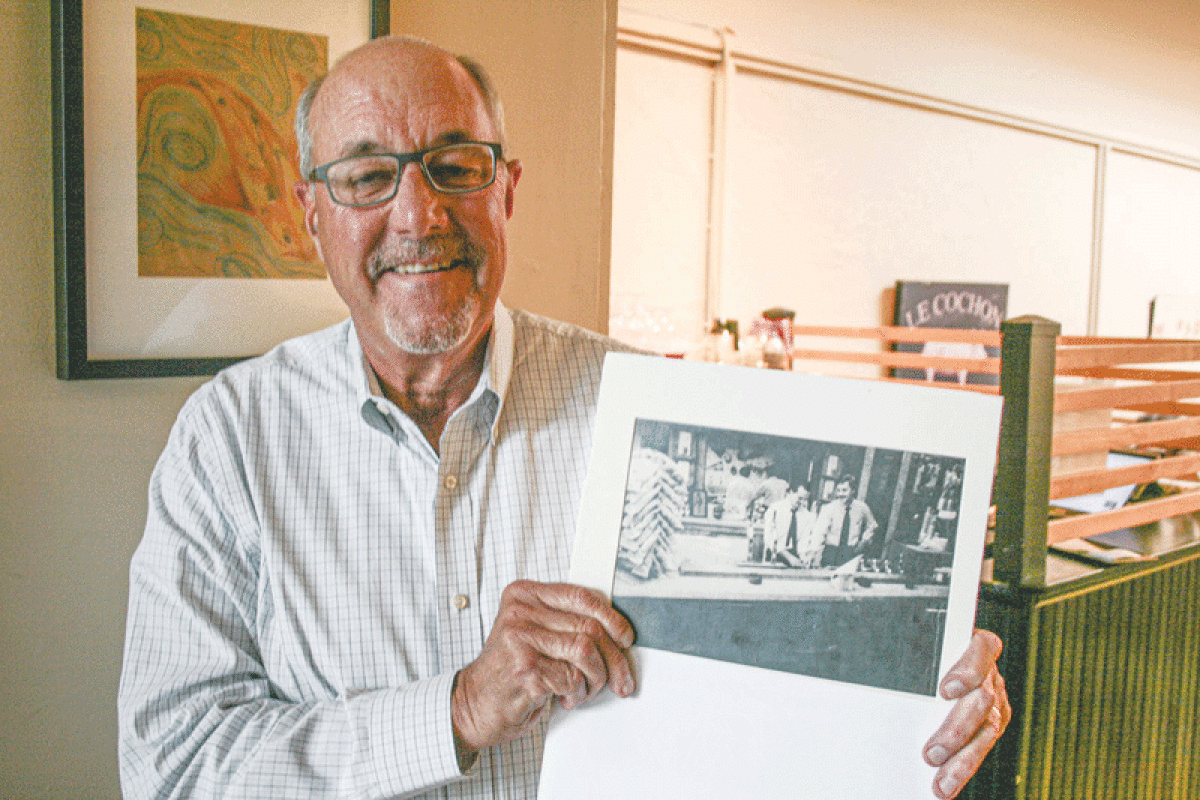STERLING HEIGHTS — Business owner Gary Kosch currently lives in the Traverse City area, managing dozens of businesses under the umbrella of Kosch Hospitality.
But around four decades ago, he was just getting started as an entrepreneur when he co-founded Kosch’s Korner Deli near the corner of Schoenherr and Hall roads in Sterling Heights.
And just like most things, the city, its surroundings and the business climate looked different back then.
“We decided that was the best location,” Gary, 66, said. “That corner was almost freshly developed at that time. There was nothing on the north side of Hall Road — that was all farmland still. So we were one of the first restaurants on that corner.”
The deli was a partnership between Gary and his brother, Gordie Kosch. Both grew up in Dearborn and graduated from Western Michigan University. They invested their inheritance money and started a business partnership in 1980.
Gary said their first enterprise, Kosch’s Korner Deli, opened in July 1981 at the Clinton Valley Mall Shopping Center in Sterling Heights. He said the business at the time was near a Service Merchandise and a Montgomery Ward. While Lakeside Mall existed and was new at the time, in many aspects, the surrounding area still had a rural character, he explained.
And that relative lack of development had an impact on the business’s customer base.
“There was a couple that opened a farm. They would come in all the time,” Gary said. “They thought it was great. They were one of our first customers.”
Starting a restaurant business can involve hard and sometimes frustrating work, Gary explained.
“When we first went into it, we were pretty bummed out because all our friends had corporate jobs,” he said. “We opened this up. We got humbled pretty quick the first couple years. It was a real struggle for us to get the sales we were hoping for. We got a liquor license around two years into it. … That really launched us after that.”
Kosch said he and his brother owned Kosch’s Korner Deli until the late 1990s, when the property was sold and turned into an Indian restaurant.
Although the Sterling Heights deli eventually saw an end, Gary and Gordie expanded their business in other ways. In the mid-1990s, they branched out and further developed Kosch Hospitality, a multiunit hospitality operator composed of businesses that still run in multiple Michigan locations.
Those businesses include restaurants, catering, food concessions and real estate, and at the peak, the Kosches’ businesses had around 400 employees, Gary said. And while the COVID-19 pandemic brought its challenges, Gary said they managed, thanks to a low debt burden, a diverse portfolio and an eye for opportunities.
Remembering Gordie
Gary said that over the years, he and his brother worked well together as a team. He said he focused on the accounting and finances, while his brother excelled at sales.
However, that partnership came to a tragic end last month. Gordie died at age 63 on Aug. 5, just months after being diagnosed in March with amyotrophic lateral sclerosis. ALS is also known as Lou Gehrig’s disease — Gehrig was a baseball player who died from the condition.
Gary reflected on Gordie’s life and how the two worked together.
“We were business partners for 38 years,” Gary said. “We have probably had about 100 operating units. It was amazing how vibrant we both were and how quickly that disease took away his capability to live. It was virtually five months since he was diagnosed, and he passed.”
ALS is a progressive, degenerative disease that currently has no cure. According to ALS of Michigan, the disease degrades the body’s motor neurons, which weakens muscles and impairs movement, speech, breathing and more.
Gary said he foresees engaging in future charitable projects to stop and cure ALS.
“We both went to Western (Michigan University), and Western had an ALS research program that we’re going to donate to,” Gary said.
Kim Graziosi, the director of development and marketing at ALS of Michigan, said her organization provides a host of services to patients with ALS and their families. She said that includes loans of medical equipment, a transportation program, an in-home care program, an on-staff speech and language pathologist, support groups, and workshops.
She encouraged anyone recently diagnosed to reach out to seek support from organizations like hers.
“Reaching out to us would be a good place to start,” she said. “We do follow-up calls — we check in not only with the patient, but (also) the family.”
Learn more about ALS of Michigan by visiting alsofmichigan.org.
 Publication select ▼
Publication select ▼



















